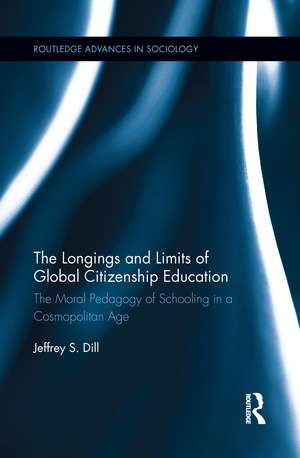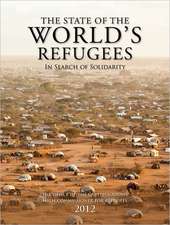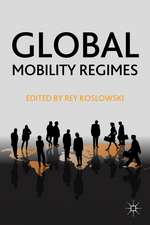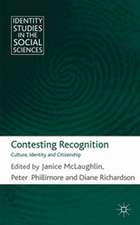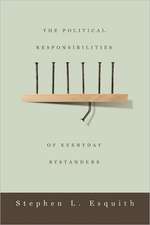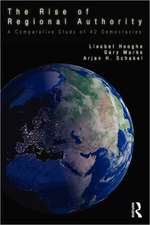The Longings and Limits of Global Citizenship Education: The Moral Pedagogy of Schooling in a Cosmopolitan Age: Routledge Advances in Sociology
Autor Jeffrey S. Dillen Limba Engleză Paperback – 8 sep 2015
This book offers an empirical account from the perspective of teachers and classrooms, based on a qualitative study of ten secondary schools in the United States and Asia that explicitly focus on making global citizens. Global citizenship in these schools has two main elements, both global competencies (economic skills) and global consciousness (ethical orientations) that proponents hope will bring global prosperity and peace. However, many of the moral assumptions of global citizenship education are more complex and contradict these goals, and are just as likely to have the unintended consequence of reinforcing a more particular Western individualism. While not arguing against global citizenship education per se, the book argues that in its current forms it has significant limits that proponents have not yet acknowledged, which may very well undermine it in the long run.
| Toate formatele și edițiile | Preț | Express |
|---|---|---|
| Paperback (1) | 362.26 lei 43-57 zile | |
| Taylor & Francis – 8 sep 2015 | 362.26 lei 43-57 zile | |
| Hardback (1) | 1057.40 lei 43-57 zile | |
| Taylor & Francis – 4 iun 2013 | 1057.40 lei 43-57 zile |
Din seria Routledge Advances in Sociology
-
 Preț: 385.10 lei
Preț: 385.10 lei -
 Preț: 152.38 lei
Preț: 152.38 lei -
 Preț: 309.12 lei
Preț: 309.12 lei - 20%
 Preț: 296.87 lei
Preț: 296.87 lei -
 Preț: 334.09 lei
Preț: 334.09 lei -
 Preț: 204.46 lei
Preț: 204.46 lei - 9%
 Preț: 865.97 lei
Preț: 865.97 lei -
 Preț: 310.81 lei
Preț: 310.81 lei -
 Preț: 326.40 lei
Preț: 326.40 lei -
 Preț: 311.41 lei
Preț: 311.41 lei - 8%
 Preț: 388.97 lei
Preț: 388.97 lei -
 Preț: 288.87 lei
Preț: 288.87 lei -
 Preț: 311.33 lei
Preț: 311.33 lei -
 Preț: 311.41 lei
Preț: 311.41 lei -
 Preț: 303.42 lei
Preț: 303.42 lei -
 Preț: 301.50 lei
Preț: 301.50 lei -
 Preț: 326.63 lei
Preț: 326.63 lei -
 Preț: 152.29 lei
Preț: 152.29 lei -
 Preț: 311.41 lei
Preț: 311.41 lei -
 Preț: 309.94 lei
Preț: 309.94 lei -
 Preț: 316.13 lei
Preț: 316.13 lei -
 Preț: 152.99 lei
Preț: 152.99 lei -
 Preț: 334.09 lei
Preț: 334.09 lei -
 Preț: 309.46 lei
Preț: 309.46 lei -
 Preț: 386.77 lei
Preț: 386.77 lei - 8%
 Preț: 388.91 lei
Preț: 388.91 lei -
 Preț: 310.60 lei
Preț: 310.60 lei -
 Preț: 310.22 lei
Preț: 310.22 lei -
 Preț: 310.51 lei
Preț: 310.51 lei -
 Preț: 283.77 lei
Preț: 283.77 lei -
 Preț: 311.41 lei
Preț: 311.41 lei -
 Preț: 295.09 lei
Preț: 295.09 lei - 8%
 Preț: 383.57 lei
Preț: 383.57 lei - 18%
 Preț: 1111.55 lei
Preț: 1111.55 lei -
 Preț: 445.38 lei
Preț: 445.38 lei - 18%
 Preț: 701.88 lei
Preț: 701.88 lei - 18%
 Preț: 1053.92 lei
Preț: 1053.92 lei - 18%
 Preț: 1002.36 lei
Preț: 1002.36 lei - 18%
 Preț: 1057.89 lei
Preț: 1057.89 lei - 16%
 Preț: 248.31 lei
Preț: 248.31 lei - 18%
 Preț: 1003.30 lei
Preț: 1003.30 lei - 18%
 Preț: 1109.21 lei
Preț: 1109.21 lei - 18%
 Preț: 997.11 lei
Preț: 997.11 lei - 18%
 Preț: 1061.22 lei
Preț: 1061.22 lei - 18%
 Preț: 1058.06 lei
Preț: 1058.06 lei - 18%
 Preț: 1002.36 lei
Preț: 1002.36 lei - 18%
 Preț: 1113.12 lei
Preț: 1113.12 lei
Preț: 362.26 lei
Nou
Puncte Express: 543
Preț estimativ în valută:
69.32€ • 72.56$ • 57.69£
69.32€ • 72.56$ • 57.69£
Carte tipărită la comandă
Livrare economică 31 martie-14 aprilie
Preluare comenzi: 021 569.72.76
Specificații
ISBN-13: 9781138952263
ISBN-10: 1138952265
Pagini: 186
Ilustrații: 2 black & white illustrations, 2 black & white tables, 1 black & white halftones, 1 black & white line drawings
Dimensiuni: 152 x 229 x 11 mm
Greutate: 0.28 kg
Ediția:1
Editura: Taylor & Francis
Colecția Routledge
Seria Routledge Advances in Sociology
Locul publicării:Oxford, United Kingdom
ISBN-10: 1138952265
Pagini: 186
Ilustrații: 2 black & white illustrations, 2 black & white tables, 1 black & white halftones, 1 black & white line drawings
Dimensiuni: 152 x 229 x 11 mm
Greutate: 0.28 kg
Ediția:1
Editura: Taylor & Francis
Colecția Routledge
Seria Routledge Advances in Sociology
Locul publicării:Oxford, United Kingdom
Public țintă
Postgraduate and UndergraduateCuprins
Introduction Part I: Origins 1. Why Global Citizenship? 2. Educating Citizens: The Long View Part II: Features 3. Global Citizenship as Global Consciousness 4. Global Citizenship as Global Competencies Part III: Problems 5. The Problem of Conformity 6. The Problem of Particularity 7. Liberal Individualism and the Limits of Global Citizenship Education Part IV: Possibilities 8. Alternative Possibilities, Alternative Realities. Conclusion. Appendix A: Data and Method. Appendix B: Education as Formation: Theoretical Framework.
Recenzii
"Educators around the world consider how to prepare young people for a globalizing world. Jeffrey Dill studies the resolutions in some special schools that have made major efforts on this front. They try to prepare students both for productive lives, and for responsible citizenship, in the world society. This leaves open the moral nature of the global social order within which the students are to be both successful and good citizens. National identities won't do at all, but neither will religious ones. In practice, what evolves in the schools is an expanded individualism of a distinctly Western sort: the student should learn to be tolerant of everything except intolerance. Dill's analysis of the issue will be of great interest to those interested in the educational effects of globalization, and specifically to those interested in the contemporary meaning of civic education."
- John Meyer, Department of Sociology, Stanford University
"The book is refreshingly clear and accessible and makes a very powerful contribution to the field. It is well-considered and argued and is of direct relevance and a must-read for anyone interested in citizenship education. The text has a political resonance that will have an impact. Highly recommended."
- James Arthur, British Journal of Educational Studies
- John Meyer, Department of Sociology, Stanford University
"The book is refreshingly clear and accessible and makes a very powerful contribution to the field. It is well-considered and argued and is of direct relevance and a must-read for anyone interested in citizenship education. The text has a political resonance that will have an impact. Highly recommended."
- James Arthur, British Journal of Educational Studies
Descriere
This book is an empirical study of global citizenship education in ten secondary schools in the United States and Asia. Proponents seek to equip students with the consciousness and competencies necessary to make a world of universal benevolence, peace, and prosperity. However, many of the moral assumptions of global citizenship education are more complex and contradict these goals, and are just as likely to have the unintended consequence of reinforcing a more particular Western individualism. Dill argues that global citizenship education in its current forms has significant limits that proponents have not yet acknowledged, which may very well undermine it in the long run.
